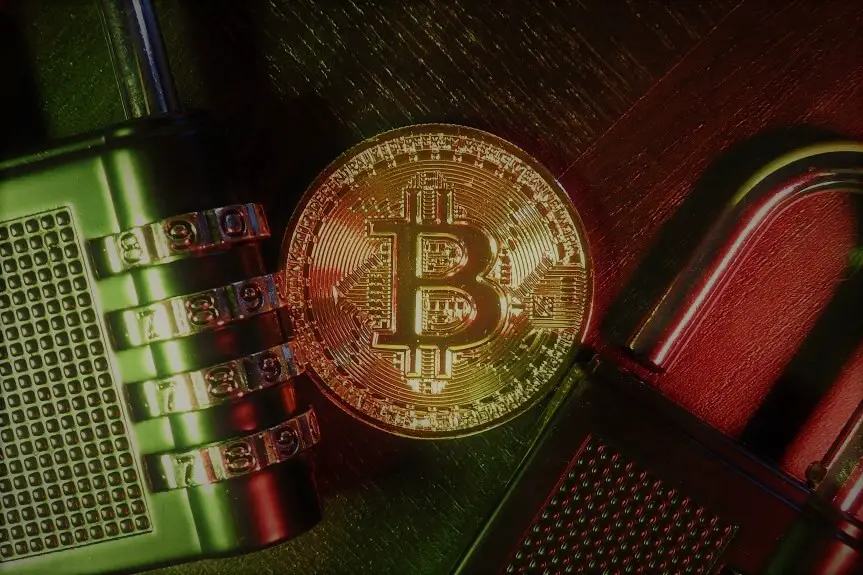Cryptocurrency is Safe: In the ever-evolving world of finance, cryptocurrencies have emerged as a revolutionary force, challenging traditional banking systems and reshaping the way we conduct transactions. With the surge in popularity of cryptocurrencies like Bitcoin, Ethereum, and many others, one question remains at the forefront of people’s minds: Is cryptocurrency safe?
The Cryptographic Backbone
Cryptocurrencies rely on advanced cryptographic techniques to secure transactions, control the creation of new units, and verify the transfer of assets. Each cryptocurrency is built on a blockchain, a distributed ledger technology that records all transactions across a network of computers. This technology ensures that every transaction is transparent, immutable, and tamper-proof.
Decentralization: A Pillar of Security
One of the key elements that sets cryptocurrencies apart from traditional banking systems is decentralization. Unlike centralized banks, cryptocurrencies operate on a global network of computers, and there is no single point of control. This decentralization significantly reduces the risk of a single point of failure or manipulation.
The Role of Miners
Miners play a vital role in ensuring the security of cryptocurrency networks. They validate transactions and add them to the blockchain. To compromise the security of a cryptocurrency, an attacker would need to control the majority of the network’s computing power, an extremely challenging task given the decentralized nature of most cryptocurrencies.
Private and Secure Transactions
Cryptocurrencies offer a level of privacy and security that is often unparalleled in traditional financial systems. Through the use of cryptographic keys, users can send and receive funds without revealing their identity. This anonymity provides a layer of protection against fraud and identity theft.
Smart Contracts: Self-Executing Security
Smart contracts are self-executing contracts with the terms directly written into code. They are used to automate various tasks on the blockchain, from transferring assets to enforcing agreements. The transparency and immutability of the blockchain ensure that once a smart contract is deployed, it cannot be altered, providing a high level of security for all parties involved.
Security Against Counterfeiting
Cryptocurrencies, such as Bitcoin, employ a process known as mining to create new units. This process involves solving complex mathematical puzzles, making it extremely difficult for counterfeiters to create fake coins. Additionally, cryptographic techniques ensure that each coin has a unique digital signature, further protecting against counterfeiting.
The Role of Wallets
Cryptocurrency wallets are essential for securing your digital assets. Hardware wallets, in particular, provide an extra layer of security by storing your private keys offline, making them less susceptible to hacking or malware attacks.
Regulatory Compliance
While cryptocurrencies operate independently of traditional financial institutions, they are not exempt from regulations. Many countries have introduced regulatory frameworks to ensure the safety and security of cryptocurrency transactions. These regulations include anti-money laundering (AML) and know-your-customer (KYC) procedures to prevent illegal activities and ensure the legitimacy of transactions.
Security Challenges and Solutions
Despite the robust security measures in place, the world of cryptocurrency is not immune to challenges. Hacks and breaches can occur, but the community continually works to address vulnerabilities and enhance security.
Multisignature Wallets
To address the risk of unauthorized access, many cryptocurrency users employ multisignature wallets. These wallets require multiple private keys to authorize a transaction, adding an extra layer of security.
The Role of Security Audits
Security audits are conducted regularly in the cryptocurrency space to identify vulnerabilities and improve the security of blockchain projects. These audits help ensure the integrity of the system and provide users with peace of mind.
Conclusion
In conclusion, cryptocurrency is safe due to its reliance on advanced cryptographic techniques, decentralization, and the dedication of the community to enhancing security measures continually. While challenges do exist, they are met with innovative solutions, making cryptocurrency a secure and reliable option for investors and users.
